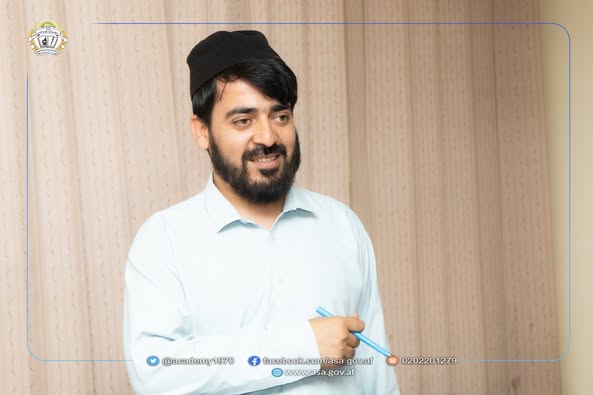The Role of Artificial Intelligence in Social Media

Assist Prof Hekmatullah Aziz, a research fellow at the Center for Social Sciences, Department of Human Sciences, Academy of Sciences of Afghanistan, delivered a scholarly presentation titled “The Role of Artificial Intelligence in Social Media” before an audience of esteemed professors and researchers.
In his presentation, Mr. Aziz explored the topic with clarity and analytical depth, organizing the discussion into several key sections. He began by outlining the rapid evolution of information technology and the rise of social media, setting the stage for a detailed explanation of artificial intelligence as the driving force behind many of these platforms. Drawing on an integrated theoretical framework that combined Agenda-Setting Theory with Technological Determinism, he provided both conceptual insights and practical applications.
The problem statement and research rationale followed, emphasizing that while AI brings numerous benefits, it also poses serious challenges including violations, algorithmic bias, and psychological risks. The study’s objectives and guiding questions addressed the impact of AI on data analysis, the identification of both opportunities and obstacles, and the development of responsible implementation strategies.
The findings section offered rich insights into key applications of AI in media, such as personalized content delivery, user sentiment analysis, automated content generation, fake news detection, and targeted advertising. The analysis carefully distinguished between the positive outcomes such as enhanced security, improved user experience, and more effective marketing and the negative effects, including information vulnerabilities, opacity in algorithmic processes, and threats to media employment.
In closing, Mr. Aziz presented actionable recommendations for the ethical and efficient use of AI in the media environment. His thoughtful responses to audience questions, supported by clear examples, were met with appreciation and engagement. The session was widely praised by attendees for its academic rigor, coherent structure, and the speaker’s command of the subject, marking it as both successful and impactful.